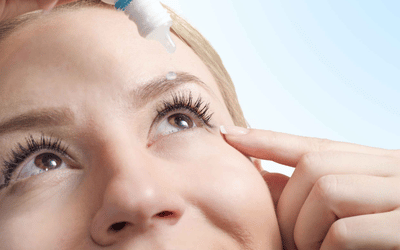Winter brings various illnesses along with cold weather. One of the organs most affected by the harsh conditions of the season is our eyes. During the winter months, complaints related to eye diseases increase due to dry, cold weather and wind. Dry eye is one of the most common eye conditions in winter. Kudret Eye Istanbul's Chief Physician, Dr. Nail Sönmez, provides information about dry eyes and offers suggestions on how to protect our sensitive eyes.
The Power of Tears!
Dr. Nail Sönmez emphasizes the importance of tears for eye health and explains the symptoms of dry eyes: "Our eyes do not only produce tears when we cry or when a foreign object enters the eye. A healthy eye continuously produces a stable level of tears. This tear production keeps the eye moist, allowing the eyelids to move comfortably. The liquid we call tears prevents irritation of the cornea, the front layer of the eye. Additionally, tears act as the security guards of our eyes. They help remove dust and foreign particles and kill certain microbes. Tears also provide oxygen and nourishment to the eyes. The reduced production or deterioration in the quality of this beneficial secretion can lead to complaints such as stinging, burning, redness, itching, watering, sticky discharge, and difficulty wearing contact lenses."
Cold Weather and Wind Threaten the Eyes!
Ophthalmologist Dr. Nail Sönmez highlights the increase in dry eye complaints during the winter months: "Factors that cause dry eyes include seasonal changes, dry air caused by air conditioning systems, continuous screen exposure, contact lens use, prolonged driving, smoking, and allergies. Increased air pollution, dry, cold weather, and wind in winter threaten our eyes outdoors, while moisture loss caused by heating systems indoors invites dry eyes. Although dry eyes can occur at any age, it is more common in old age due to decreased tear production. This condition affects both men and women, but it is especially prevalent in women after menopause. Heart disease, diabetes, glaucoma, certain rheumatic conditions, and some medications can also cause dry eyes. Additionally, vitamin A deficiency due to inadequate nutrition can lead to dry eyes."
Dry Eyes Can Cause Permanent Damage!
Dr. Nail Sönmez warns that dry eyes can cause permanent damage to the cornea: "Early diagnosis and treatment are important for dry eyes, as with any disease. Delayed treatment will only increase the complaints. Insufficient tear production makes eyelid movements difficult, leading to friction. This can cause permanent damage to the nerves in the cornea, the transparent layer at the front of the eye. Insufficient tear production means insufficient protection for our eyes. Any complaints should be addressed by consulting an eye specialist. After the necessary examinations and tests, a treatment plan will be drawn up. The factors causing dry eyes need to be identified and eliminated. At this point, the patient has a significant role. The patient should provide complete and accurate information about their habits, lifestyle, and any medications they are using."
Tips for Preventing Dry Eyes!
Ophthalmologist Dr. Nail Sönmez offers the following suggestions for preventing dry eyes:
-
Those who work at a desk or in front of a computer are at risk of dry eyes. The eye’s blinking reflex is reduced when focusing intently on the screen. You can prevent this by taking short breaks. Rest your eyes by closing them for 1-2 minutes. If you tend to forget due to intense work, setting reminders on your computer can be helpful.
-
Heating systems in winter cause dry air. Humidify the air in your home or workplace. Placing a container of water in the room can increase the humidity level.
-
Ensure to ventilate your home during times when air pollution is low. Avoid ventilating during peak traffic hours or when factories and workplaces are active.
-
Water is vital for our eyes, just like every organ. If we do not consume the required amount of water, our eyes cannot produce enough tears. Drink at least 2 litres of water daily.
-
Contact lens use is one of the main factors causing dry eyes. Consult your doctor, who can prescribe eye drops suitable for alleviating dry eyes.
-
Wearing sunglasses in winter protects against harmful rays from the sun and provides an effective solution against wind.
Remember, these blog posts are for informational purposes only. If you have any medical concerns or questions, please consult a doctor.




